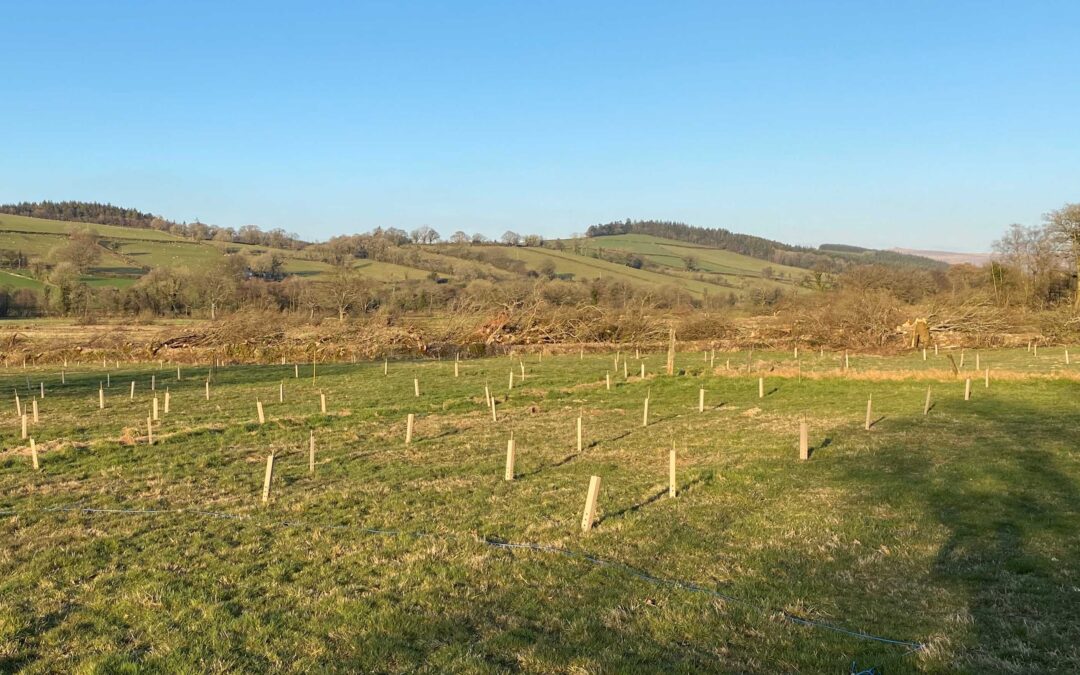Our Head of Land Management Hazel Kendall provides an update on progress in this month’s TWSBB Blog.
Spring is in the air and before we come out of the tree planting season, the Westcountry Rivers Trust (WRT) team has been busy assessing applications, allocating, organising and delivering our 7,000 trees kindly made available through Premier Foods and our collaborative work with the TWSBB and our CPES project.
The trees are a mix of native broadleaved species and continue the initial initiative between Premier Foods and the Woodland Trust to offset part of their carbon footprint at their local site in the River Lyd catchment.
Other steps are being undertaken to reduce the carbon footprint via operational activities, but tree planting continues the earlier initiative by delivering at a local scale a contribution to multiple environmental benefits.
The priority focus is the Lyd catchment and the Tamar.
We have delivered a mix of more than 10 species which will provide water quality protection, support water storage, protect and enhance soil health, sequester carbon, provide and bolster habitat provision and biodiversity (including pollinators), and contribute to better air quality.
These great positives mean we can increase our resilience in our local catchments and see the direct benefits for our communities and society as a result.
Several sites this year were keen to build in hedging as well as field corners or riparian margins for planting, which all act to protect field boundaries, re-connect fragmented habitat and the wildlife corridors they represent, bolstering existing habitat as much as creating new.
Three farms are replanting hedgerows to reinstate those previously lost or neglected and are being guided by historic field maps or records to achieve this while intercepting surface run-off. Others are planting to directly help stabilise riverbanks and river margins, or support biodiversity such as complementing traditional orchards and beekeeping.
The team at WRT has managed to turn this around while remaining Covid-secure, and the landowners have been grateful as a result. We even managed to increase our overall numbers by linking this donation, entirely used to purchase trees and support canes and guards (cardboard ones this year – to reduce plastic use), by linking into other projects.
As a result we have so far received and allocated upwards of 14,600 trees this season – and counting!
Everyone on the TWSBB would like to thank their producers in the Tamar who have expressed interest in this fantastic opportunity.

